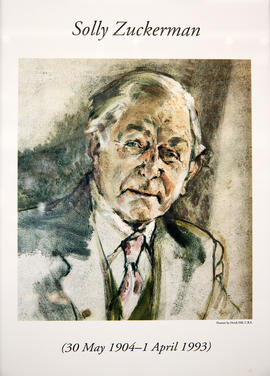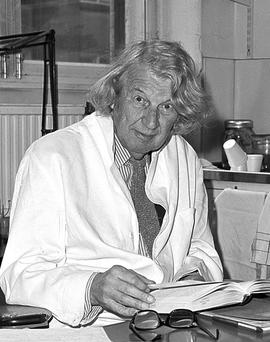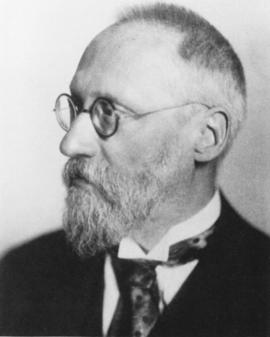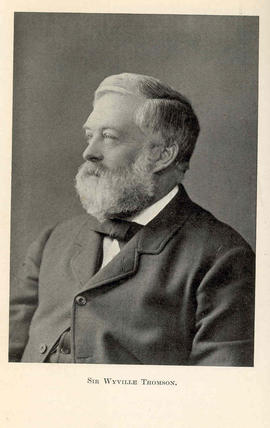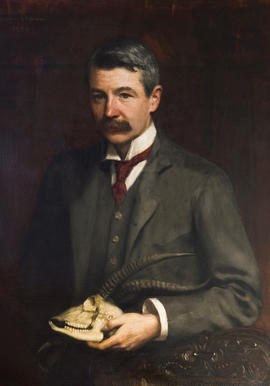Solomon 'Solly' Zuckerman was a British public servant, zoologist and operational research pioneer. He was born in Cape Town in 1904, the second child of Moses and Rebecca Zuckerman (nee Glaser). Both his parents were the children of Jewish immigrants from Russia. He was educated at the South African College School. After studying medicine at the University of Cape Town and later attending Yale University, he went to London in 1926 to complete his studies at the University College Hospital Medical School.
He began his career at the Zoological Society of London in 1928, and worked as a research anatomist until 1932. It was in this period that he founded the intellectual dining club, Tots and Quots. In 1932, he published his work 'Social Life of Monkeys and Apes'.
He taught at the University of Oxford from 1934 to 1945, during which time he was elected to a Fellowship of the Royal Society.
He was a scientific advisor to the Allies on bombing strategy in the Second World War, for his work to advance the cause of nuclear non-proliferation, and for his role in bringing attention to global economic issues.
Zuckerman married Lady Joan Rufus Isaacs in 1939 and they had two children. He died in London in 1993 following a heart attack.
